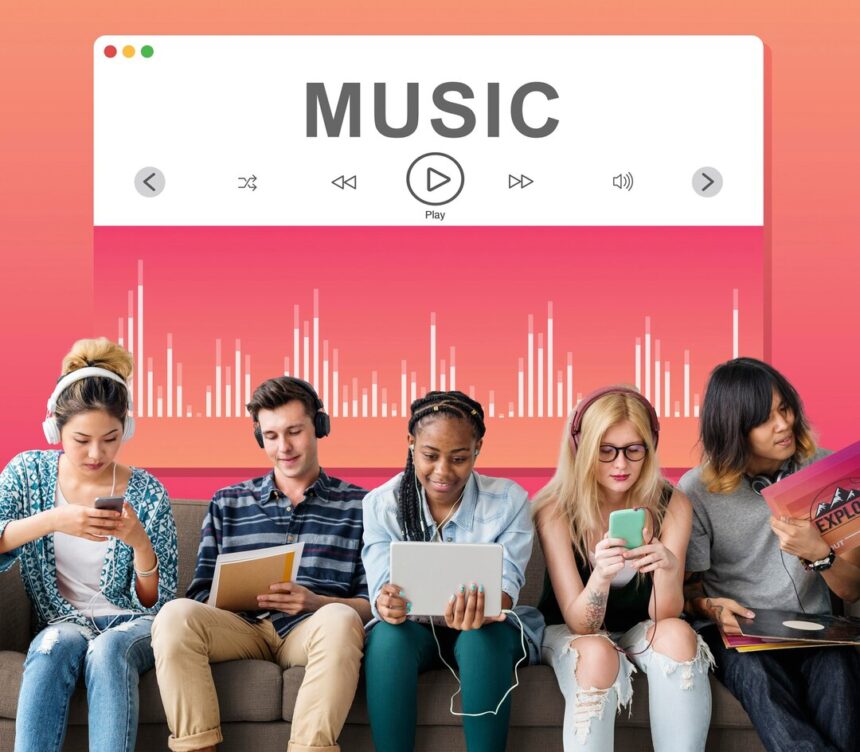The emergence of music streaming services has revolutionized the way people discover, consume, and interact with music, fundamentally transforming the music industry landscape. From the rise of subscription-based platforms to the shift in revenue models and artist compensation, the impact of music streaming on the industry has been profound and far-reaching. In this article, we’ll explore the various aspects of this impact and how it has reshaped the music industry in recent years.
1. Accessibility and Convenience:
Music streaming services have democratized access to music, making it easier than ever for listeners to discover and enjoy a vast catalog of songs from any device with an internet connection. With streaming platforms offering on-demand access to millions of tracks, listeners have unparalleled convenience and flexibility in how they consume music, whether it’s through curated playlists, personalized recommendations, or algorithm-driven discovery features.
2. Shift in Consumption Patterns:
The rise of music streaming has led to a significant shift in consumption patterns, with a growing preference for streaming over traditional formats such as CDs and digital downloads. Streaming services now dominate the market, accounting for the majority of music consumption globally. This shift has prompted industry players to adapt their strategies to cater to the preferences and behaviors of streaming-era consumers.
3. Revenue Models and Artist Compensation:
The transition to music streaming has transformed revenue models in the music industry, with streaming services replacing traditional sales as the primary source of income for artists and record labels. While streaming offers the potential for widespread distribution and access to a global audience, it has also sparked debates over fair compensation for artists, songwriters, and rights holders.
4. Challenges for Emerging Artists:
While streaming platforms offer unprecedented opportunities for exposure and discovery, they also present challenges for emerging artists seeking to earn a sustainable income from their music. With streaming royalties often calculated based on complex algorithms and revenue-sharing models, smaller artists may struggle to earn meaningful income from streaming alone, leading many to rely on alternative revenue streams such as live performances, merchandise sales, and crowdfunding.
5. Impact on Record Labels and Distribution:
The rise of music streaming has disrupted traditional record label and distribution models, prompting industry players to adapt their strategies to remain competitive in the digital age. Record labels now play a pivotal role in negotiating licensing deals with streaming platforms and leveraging data analytics to identify emerging trends and artists with commercial potential.
6. Data-Driven Insights and Marketing:
Music streaming platforms generate vast amounts of data on listener preferences, behaviors, and trends, providing valuable insights for artists, record labels, and marketers. By analyzing streaming data, industry players can identify audience demographics, optimize promotional campaigns, and tailor content to meet the evolving needs and interests of listeners.
7. Globalization of Music:
Music streaming has facilitated the globalization of music, enabling artists from diverse cultural backgrounds and geographic locations to reach audiences around the world. Streaming platforms have made it easier for international artists to gain exposure beyond their home markets and connect with fans on a global scale, leading to greater cultural exchange and diversity in the music industry.
8. Innovations in Content Creation and Distribution:
The rise of music streaming has fueled innovations in content creation and distribution, with artists and creators exploring new formats and platforms to engage with their audience. From immersive audio experiences to interactive multimedia content, streaming platforms offer opportunities for experimentation and creativity in how music is produced, distributed, and consumed.
The impact of music streaming on the industry has been transformative, revolutionizing consumption habits, revenue models, and distribution strategies. While streaming offers unprecedented opportunities for artists and listeners alike, it also presents challenges in terms of fair compensation, data privacy, and the sustainability of the music ecosystem. As the music industry continues to evolve in the digital age, stakeholders must navigate these challenges and opportunities to ensure a vibrant and thriving ecosystem that benefits artists, listeners, and industry players alike.











